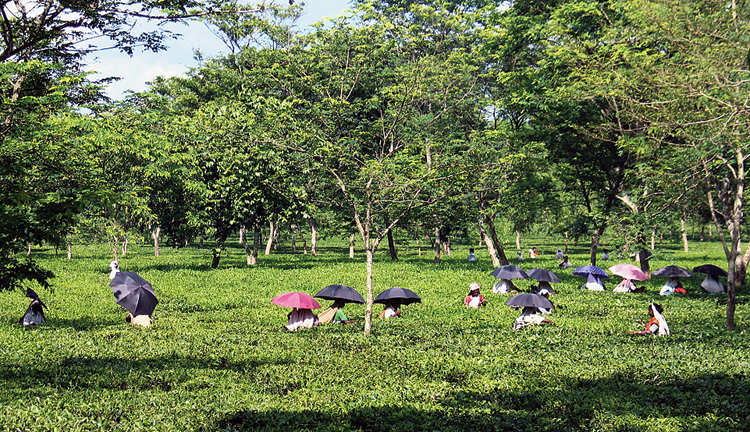Tea gardens in north Bengal suffered crop losses to the extent of 46 per cent till the end of April this year because of the lockdown, show a set of figures published by the Tea Research Association at Jorhat in Assam.
According to sources at the TRA, they obtained data from 459 tea gardens in Assam, Bengal and Tripura to assess the losses caused by the coronavirus-induced lockdown. Assam and Bengal contribute to the maximum portion of the tea produced in India.
“The data of crop loss in March and April — virtually the first two months of the current production season when plucking resumed in tea gardens from the third week of February according to the directive of the Tea Board of India — were collated. It has been found that tea gardens in the Terai and the Dooars have lost close to half of their crop vis-à-vis 2019. In the Darjeeling hills, the loss of crop is comparatively less, that is, slightly above 30 per cent,” said a source.
While the Terai tea belt suffered a production loss of 46 per cent, it was 46.2 per cent in the Dooars. In the hills, the cross loss was 31.1 per cent.
The information available with the TRA shows that the loss varies from 46.5 per cent to 72.8 per cent in different brew belts of Assam — the largest producer of tea in the country.
Tripura suffered a crop loss of 63.6 per cent from March till April 30.
In the three states, there were huge differences in the quantity of tealeaves plucked in March and April compared to 2019.
In Bengal, the total amount of plucked tealeaves in March and April last year was around 125. 51 lakh kg. But the figure came down to 69.86 lakh kg in the corresponding months this year.
The margin is much higher in Assam and Tripura, show the data with the TRA.
Tea planters said the actual loss could be higher than the estimates made by the TRA. “The actual crop loss might go up as reports from the ground indicate a sharp drop in the production because of cumulative disruptions brought about by the lockdown. First, there was a complete shutdown, followed by permission for skiffing. Then, production resumed in the tea plantations with truncated workforce. These days, variations in the temperature stunted the growth of tea leaves,” said Prabir Bhattacharjee, secretary general, Tea Association of India.











